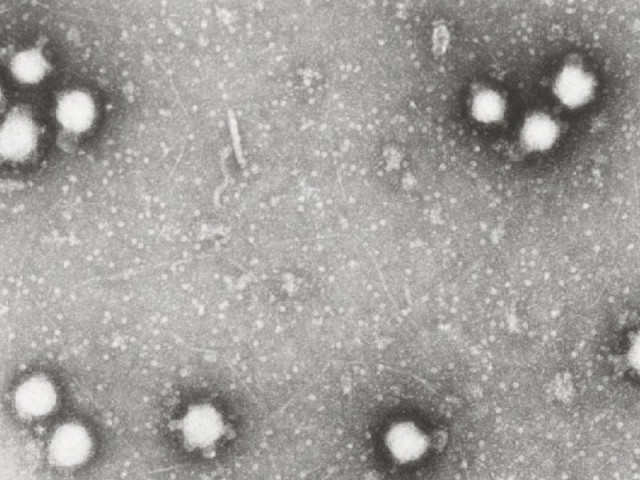Mysterious disease in Karak: Doctors struggling to identify virus which claimed five lives
Doctors visit affected village, suspect it’s a strain of Congo Fever but await test results to be sure

Doctors visit affected village, suspect it’s a strain of Congo Fever but await test results to be sure. photo: file
Health experts in the region are divided over what the disease is. Some suspect it to be an outbreak of Acute Watery Diarrhea (AWD) while others, after visiting the affected areas, believe that it is a strain of the Crimean-Congo Haemorrhagic
Fever (CCHF).
Cases of the still mysterious disease were first reported on May 30. But doctors sat up and took notice when on June 4, two cases were reported from Lakki Marwat district.
Different teams of medical experts from the area and the health department in Peshawar were dispatched to Karak and Lakki Marwat to probe the issue.
Poor routine immunization dampens polio eradication efforts
“Earlier, it looked like AWD but with the symptoms, we can say these are CCHF cases,” a senior health official said, adding that they have “sent samples to the National Institute of Health (NIH) and the results are awaited.”
In late May, six people had slaughtered a cow in Bubbal Khail village and distributed the meat among 180 people. Those who were involved in the slaughter or skinning the cow were reportedly infected.
Four died on the spot while a fifth died while receiving treatment at the Lady Reading Hospital (LRH). The sixth man, who was also shifted to LRH in critical condition, is still receiving treatment at the facility’s Intensive Care Unit (ICU).
Officials stated that initially, it looked like the men suffered from an outbreak of diarrhoea or gastroenteritis which had later converted into a viral haemorrhagic fever since four of six patients, who lived close together, died while exhibiting similar symptoms.
A team of doctors who visited Bubbal Khail village were told by locals that the cases were probably related to slaughtered cow, now believed to have been ill when it was slaughtered.
However, the doctors discovered that those who were involved in the cow’s slaughter, skinning it, butchering the meat and eating the meat got sick. But those who did not were healthy.
Defying dengue : Health minister irked by delay in reporting of cases
“Based on this observation, it was decided that these cases should provisionally be labelled and handled as cases of CCHF,” a senior health official said. However, he added that a laboratory test of the samples would help them build a case.
The medical experts suggested that the man currently admitted in LRH should be treated with Ribavirin, while locals in and around Karak should be sensitised about CCHF in coordination with district authorities and the Livestock Department.
They also suggested that physicians should visit the affected village, check locals and provide the required medicines.
Published in The Express Tribune, June 5th, 2017.



















COMMENTS
Comments are moderated and generally will be posted if they are on-topic and not abusive.
For more information, please see our Comments FAQ